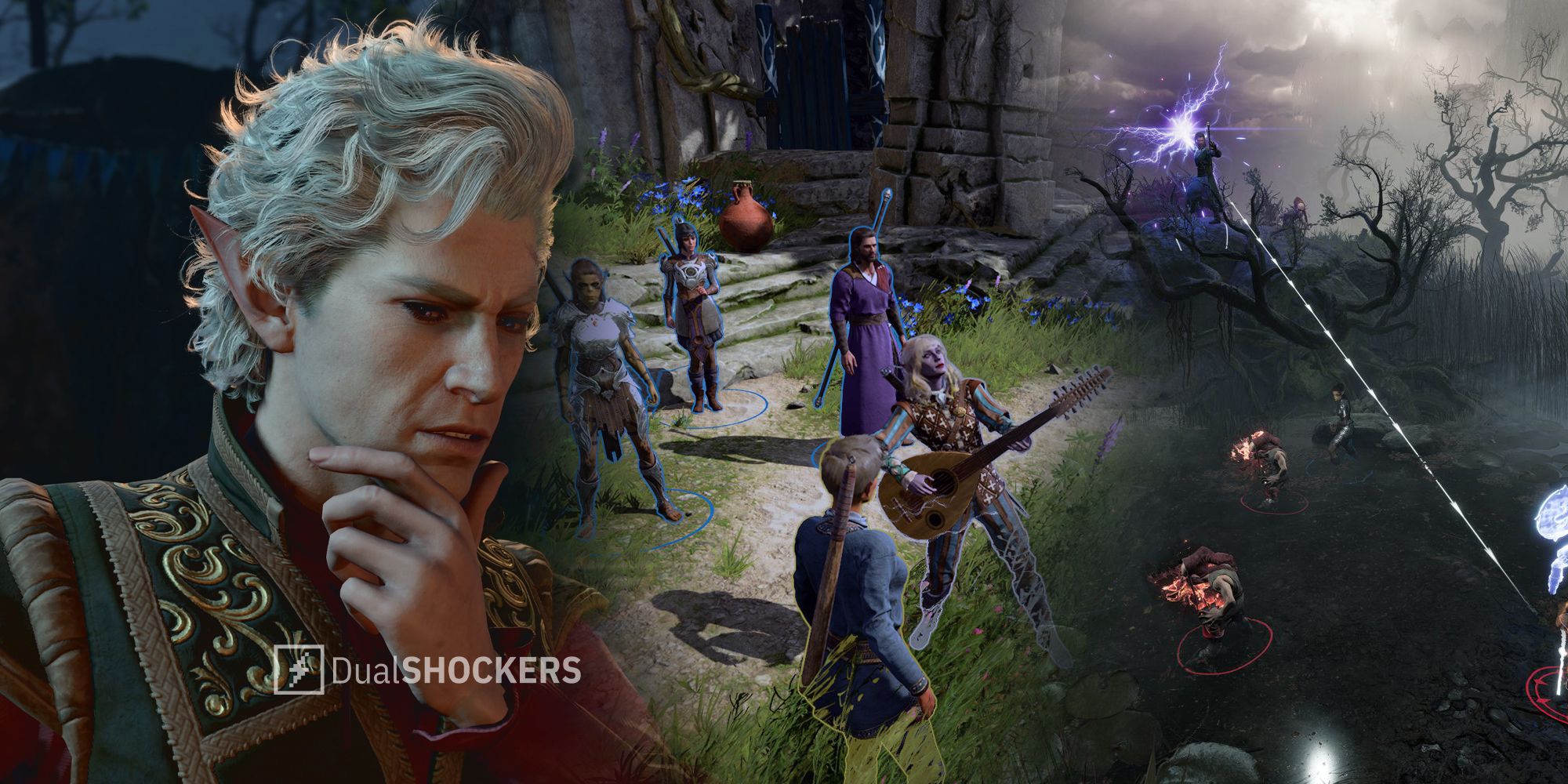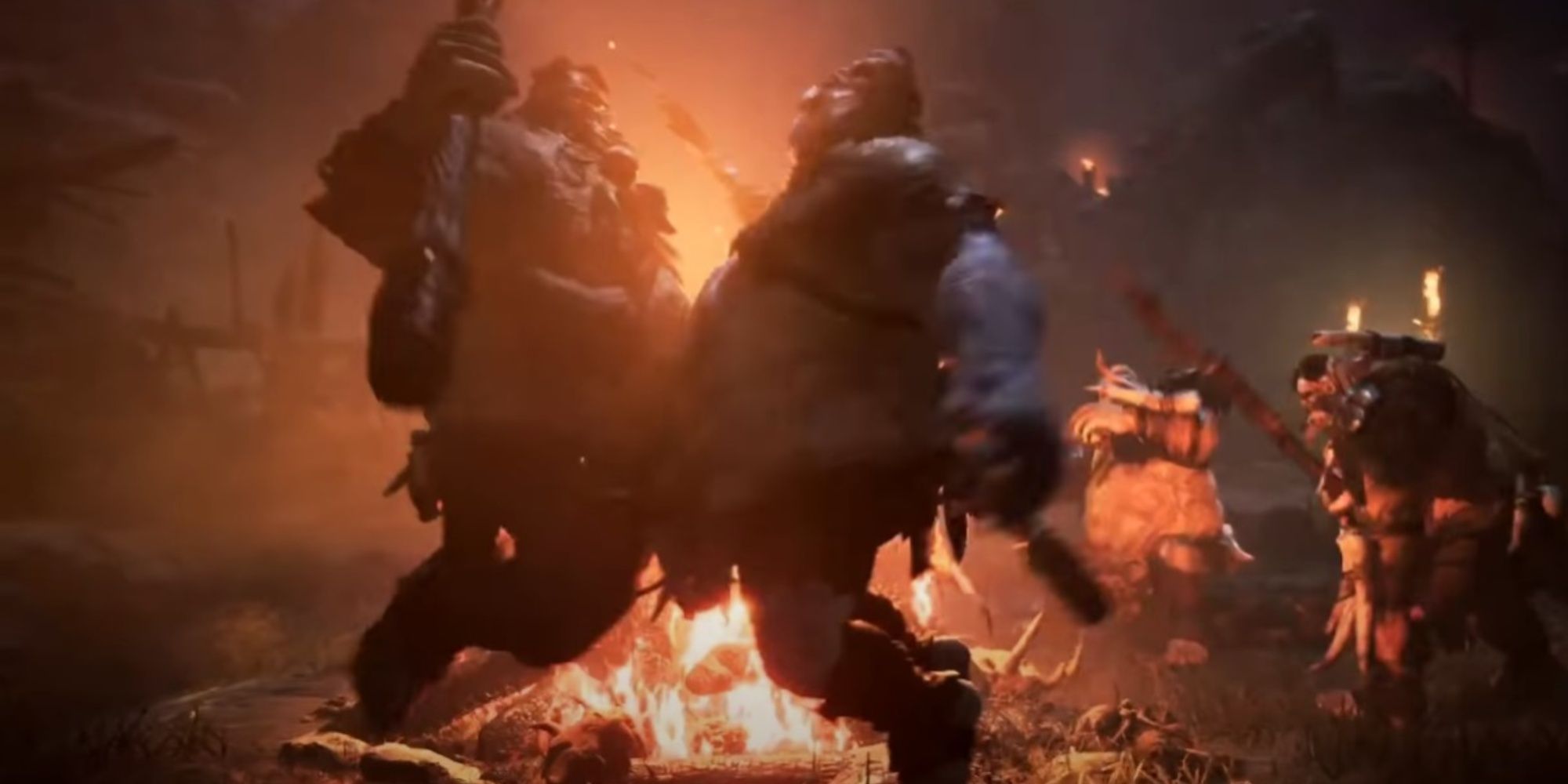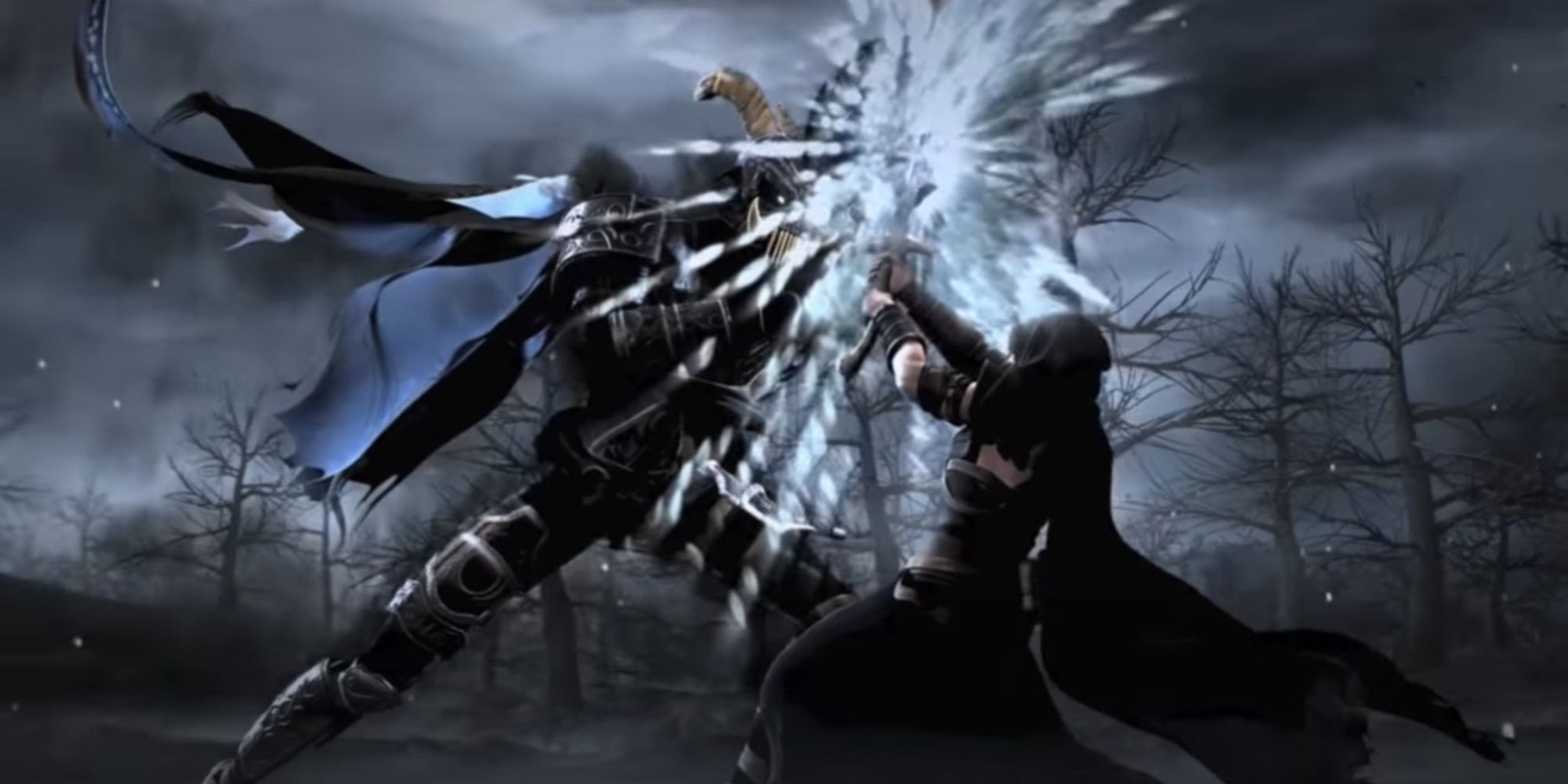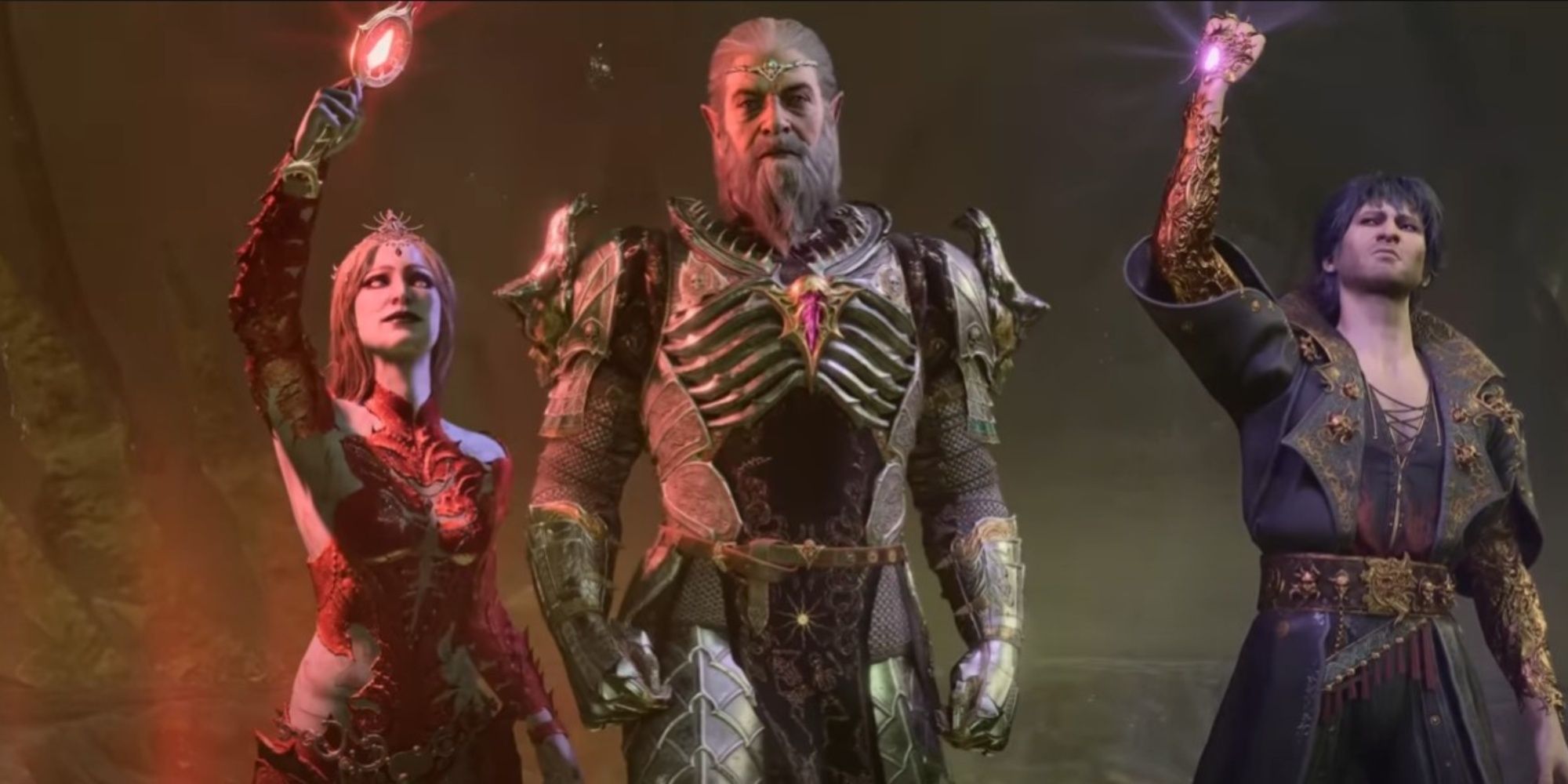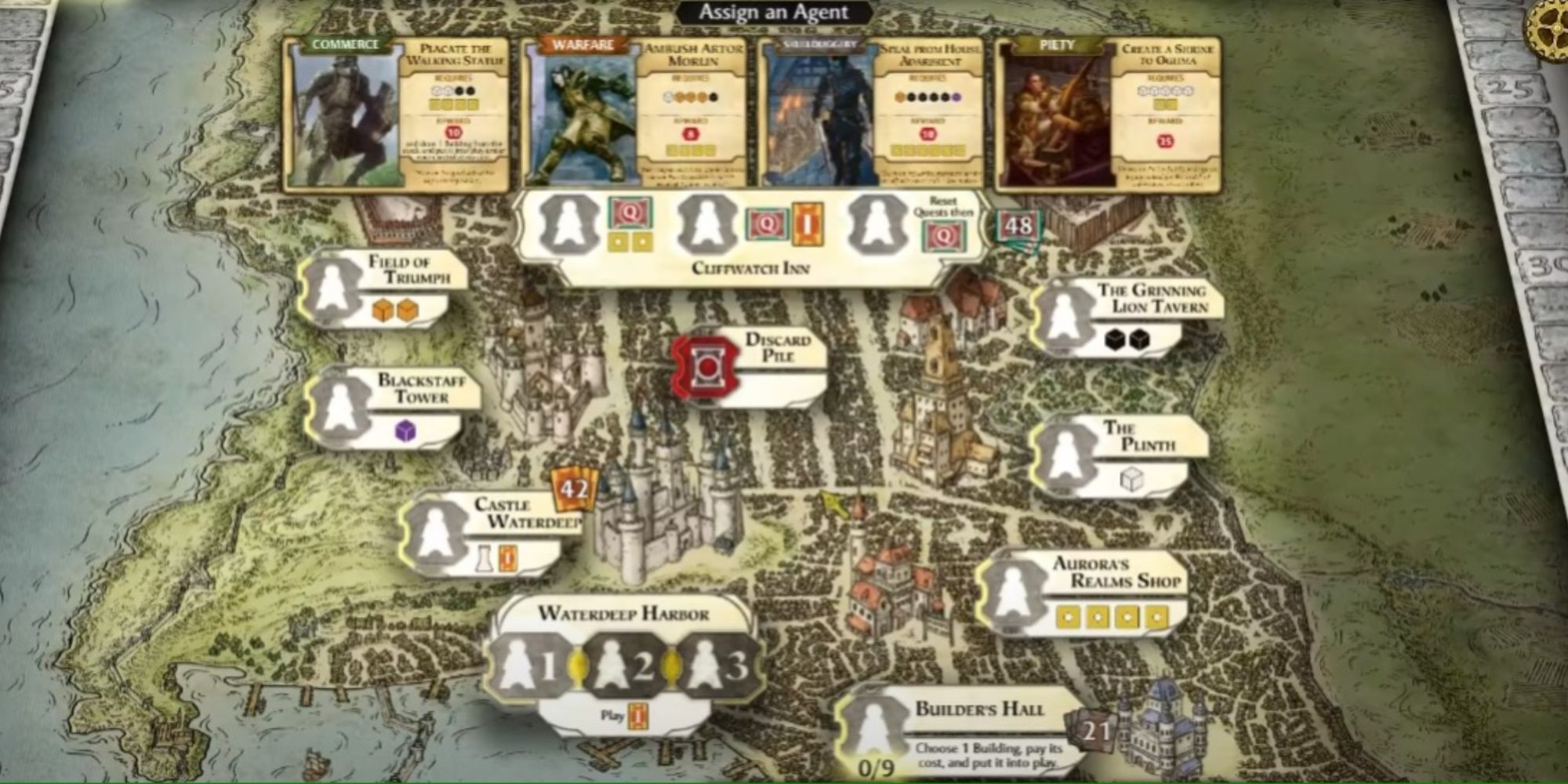Highlights
- Larian Studios' success with Baldur's Gate 3 demonstrates that Wizards of the Coast made the right choice in trusting them with the D&D license.
- There are risks in granting the D&D license to just anyone, as bad installments can tarnish the reputation of the franchise.
- Wizards of the Coast should continue to focus on tabletop gaming and let video game developers like Larian Studios handle the D&D license to bring fresh and innovative experiences to the franchise.
Larian Studios is riding high after the release of Baldur's Gate 3. The game sold 2.5 million copies in the Early Access period alone, with over 800,000 concurrent players on Steam in the first week since its full launch. Those numbers will only grow as the game comes to PlayStation 5 and (eventually) Xbox Series X/S. This is a Game of the Year contender with outstanding critical scores to back up the sheer popularity. As Larian Studios celebrates a triumph, there is another company that should be inspired by the results.
Wizards of the Coast, the owner of the Dungeons & Dragons intellectual property, clearly placed their trust in the right hands when they permitted Larian Studios to use the D&D license. This isn't the first time Wizards of the Coast has had a gamble pay off and I hope the leadership takes this as a sign to greenlight more projects. Video games based on the D&D universe aren't necessarily rare, though most of the published titles are enhanced editions, sequels, and downloadable content for established series within the D&D Universe such as Baldur's Gate and Neverwinter.
There are obviously big reputational risks to handing out the precious D&D license, and I completely understand why Wizards of the Coast doesn't lend it to just anybody. If everybody is allowed to make official D&D games, there will be more bad installments looking to make a quick buck (see: the very hit-and-miss Warhammer IP) than respectful projects that value the material. This isn't hypothetical, I lived through it and experienced firsthand the disappointment when the D&D world on the screen didn't live up to the D&D world on my kitchen counter.
Even so, it's important not to exaggerate these failures. Sword Coast Legends and Dungeons & Dragons: Daggerdale, for instance, were bad. Both games were studio destroyers. N-Space developed Sword Coast Legends, releasing the ARPG in September 2015 before shutting it down just six months later. Dungeons & Dragons: Daggerdale was a third-person real-time tactical combat game that came out in May 2011 and Bedlam Games, the developer, closed just three months later. But these punishments were largely levied against the development teams and not Wizards of the Coast. The Dungeons & Dragons license continued to be successful despite these missteps.
These lukewarm out-of-house projects didn't do nearly the damage that the in-house disaster Dungeons & Dragons: Dark Alliance did in 2021. Purchased halfway through the development process by Wizards of the Coast, Tuque Games (now rebranded to Invoke Studios) ended up making a buggy, shoddy, uninspired product. I can still conjure up bleak memories of my arrows stopping in mid-air after hitting an invisible wall while my friend hacked away goblins that bugged out and stood in place. The fallout was worse than the game. Dark Alliance was a successful series inside of the D&D franchise until this point, and this game single-handedly tarnished it.
Wizards of the Coast is trying to develop games themselves but they're mired with the Dark Alliance failure and several canceled games (via Bloomberg) already. If the worst issues in their video game development saga have come from their own projects, then it's time to trust other companies and let Baldur's Gate 3 be the beginning of something better. Wizards of the Coast is a master of tabletop gaming and they should continue to focus on that. Let video game developers do what they do best and use the license.
The upside of this gamble is blindingly bright. BioWare, Black Isle Studios, and Obsidian made the D&D name and themselves proud with the Baldur's Gate, Planescape, Icewind Dale, and Neverwinter Nights series. By allowing these teams to have some freedom, we got to experience D&D in ways that even my infinitely creative tabletop gaming group hadn't. I remember listening to the ghost singing in the Elfsong Tavern as I talked about Zhent business underneath a stone Beholder carving in the original Baldur’s Gate. Gathering the silver shard from the Shadow Reavers is a battle that demanded my best abilities in Neverwinter Nights 2. Baldur's Gate 2 remains the perfect appetizer for Baldur's Gate 3, standing tall even by modern gaming standards.
Students becoming masters is not a process that should be hindered. Wizards of the Coast should not be ashamed that their best adventure modules are made by people who don't work for Wizards of the Coast. Their job is to inspire, provide guidance, give a few examples, and then set players free to make their own fun. In the official rules, the Dungeon Master gets to decide what happens when two characters have the same initiative. Playing the role of DM, Larian Studios decided with Baldur’s Gate 3 to let two players go at the same time when next to each other in the turn order, making for the perfect kind of chaos. Allowing that kind of creativity pays off.
If other studios had never been permitted to use the D&D license, BioWare and Obsidian don't get to be what they are today. That's bad for gamers. Dungeons and Dragons also wouldn't be what it is today. That's bad for all tabletop gamers. Larian Studios was rolling with the Divinity: Original Sin franchise but they were a perfect fit for Baldur's Gate. This fusion is something that benefits both parties.
Coincidentally, I am playing the Tyranny of Dragons adventure in my D&D group and I find myself meeting Red Wizards of Thay, trading with vendors from Waterdeep, and witnessing the exploits of the Szass Tam. The passionate writers included these elements in Baldur's Gate 3. As I explored the abandoned laboratory of Szass Tam in-game, I found myself even more excited for my next D&D session. My video game pals are asking me questions about Dungeons and Dragons because of Baldur's Gate 3. This curiosity could be lucrative for Wizards of the Coast and rewarding for a huge segment of gamers that have yet to mix video games with tabletop gaming.
Wizards of the Coast is aware of this symbiotic relationship. They're offering digital dice and character sheets in D&D to those who have been hooked by Baldur's Gate 3. But what does a fisherman do when something is hooked? Reel it in. And if they're impressed by this fish, think of the other fish they can land who could do something similar. At around 450 employees, Larian Studios is on the small side of triple-A development teams. They took their time and did it right. I'm sure that Wizards of the Coast could be more liberal with its license and ask for some quality assurance or oversight in return.
Not every game can or will be Baldur's Gate 3 in scope or polish. Lords of Waterdeep is a beloved strategy board game that reached a satisfied audience on a small budget. Released in video game format in 2013 for mobile devices, the game was beloved enough to merit a PC release in 2017. Sure, it’d be great to get big, acclaimed Baldur's Gate 3-quality games, but that doesn’t happen every day. I also want tiny little D&D projects like Lords of Waterdeep. Baldur's Gate 3 can open the floodgate for great D&D games if Wizards of the Coast extends its trust to other hungry and deserving developers—whether it’s emerging indie talents, or trusted veterans like Obsidian.

